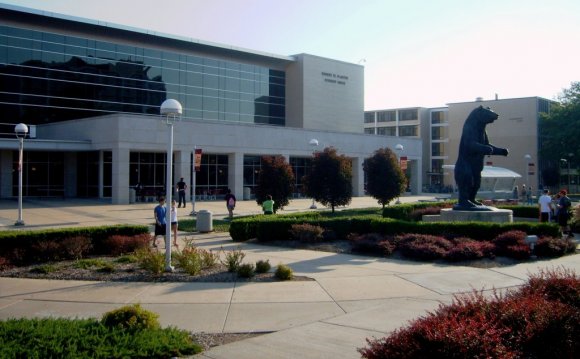
Getting a master’s degree in psychology is a critical step if you want to get a more senior position in industry or education, or if you have a longer term goal of getting a doctoral degree to become a practicing psychologist. It can be complicated figuring out exactly what type of job you’ll be qualified for with a masters psychology degree different areas, because licensure and certification rules vary a great deal from one state to the next.
In almost every state, a person with a master’s in psychology can work in private business as an industrial or organizational psychologist, a career path that can provide good earnings over the long run even if you never receive a Ph.D. There are also a few states where a psychology master’s degree will qualify you to work as a psychotherapist or a counselor for social agencies, schools or other organizations. Almost everywhere, however, a full Ph.D. is required to practice as an independent psychologist, a professional title you must be certified for by your state board of psychology.
The Courses You’ll Take
Master’s degree programs can focus on generally psychology or very specific subsets of the specialty. The degree generally requires two years of full-time study, involving a mix of core and elective courses. Typical core courses cover basic topics like developmental psychology, social and emotional development, cognitive development and research techniques.
Your choice of the more specialized elective courses will depend on which type of psychology graduate degree you are pursing, and on your career goals. They can include subjects like:
- Clinical & Social Work
- Marriage Family and Child Counseling
- Addiction Studies
- Human Sexuality
- School Psychology
- Cognitive Psychology
- Social Psychology
- Aging and Long-Term Care
- Ethics and Multicultural Issues in Psychology
- General or Advanced Statistics
- Arts Therapy
- Family, Group and Individual Therapy
- History and Systems of Psychology
- Advanced Biological Psychology
How long will getting a Master’s Degree take?
A masters degree psychology typically takes two years of full time study, though it can take longer, particularly if you are going to school and working at the same time. Schools tend to have rather confusing ways to quantify the course load, but either 60 graduate “semester hours” or 36 “semester hours” – which amount to the same thing – are usually required. Most psychology masters degrees also require you to pass an oral exam for completion.
Career Opportunities & Salaries with a Masters Degree in Psychology
Professional psychologists work in many, many different settings in healthcare, criminal justice, marketing, business management, government and education. Here are some of the most popular careers and salaries open to you with a masters in psychology. In choosing a psychology masters degree program, however, you want to be clear about whether you are aiming to work after you get the degree or continue on to get a psychology Ph.D. Some masters programs in this field are very research oriented, and are designed entirely to get you ready for doctoral level study, and not to get a job.
Salary estimate are based on information from many different sources. Most jobs have wide pay ranges that depend to a large degree on whether you are working in a private company setting for a government agency, what part of the country you are working in and how long you have been practicing in the specialty.
Clinical Psychologist
Estimated Salary: $40, 000 – $108, 000
This is the specialty that attracts the largest number of masters degree holders, and it can involve working in many different types of settings. Clinical psychologists can work with people who are truly mentally ill, assessing, diagnosing and treating people who suffer psychological disorders in hospital and mental health clinic settings. But many others work on helping people with more everyday psychological challenges – bereavement over the loss of a loved one, alcoholism or learning disabilities. Company counseling centers, schools, nursing homes, research centers, government social services and even law enforcement organizations all employ clinical psychologists. You need a license to open a private office as a clinical psychologist, and in most states you will need a Ph.D. to get that license. A few states, however, will give you a license with only a master’s degree. Most clinical psychologists cannot prescribe medicines.
Vocational or Career Counselor
Estimated Salary: $31, 000 – $86, 000
Vocational or career counselors work most often in school environments to help people make career decisions. The work involves assessing each individual’s personality, talents, interests and other attributes to map out the best possible education path towards a career goal (this job is often described as simply being an employment counselor). Vocational counselors can work with students who have unique social or academic challenges. A state certification is required to get this job in almost any school setting (a board of examiners of professional counselors sets each state’s testing and certification requirements).
School Psychologist
Estimated Salary: $39, 000 – $108, 000
School psychologists help children in schools at all grade levels in dealing with emotional, social and academic issues. This job shares certain characteristics with that of a vocational counselor, but a school psychologist is generally more focused on dealing with mental health issues that create learning and social problems in school, and a bit less on directing students on a particular career path. Demand for school psychologists has grown in recent years, as laws such as “No Child Left Behind” have required schools to come up with ways to help students that have disabilities of many different types. This job generally requires you to have a master’s degree with some learning in education (in addition to the core psychology courses you take), an internship in the field and certification from either a state psychology board or the National School Psychology Certification Board (NSPCB).
In some large universities, psychology master’s degrees are actually given by the education school in specialties like applied educational development, mental health counseling and early childhood educational psychology.
Counselor
Estimated Salary: $31, 000 – $86, 000
Counselors work in all sorts of different private and government settings, and specialize in handling many different types of problems. State, city and local governments employ many counselors to work on health-related or social welfare issues. As a counselor, you may specialize in dealing with emotional, family, substance abuse or educational issues, or you may work in a position where you deal patients or “clients” who have all these needs.
Share this Post
INTERESTING PSYCHOLOGY VIDEO













